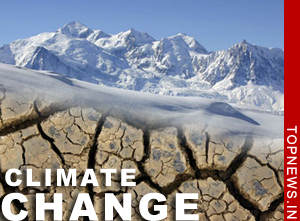Climate change aims need to be better integrated
 Washington, March 27 : A report published by the Partnership for European Environmental Research (PEER), has suggested that specific measures to tackle climate change, such as emissions trading, will only be successful if they are coherently supported by other government policies addressing economic and social issues.
Washington, March 27 : A report published by the Partnership for European Environmental Research (PEER), has suggested that specific measures to tackle climate change, such as emissions trading, will only be successful if they are coherently supported by other government policies addressing economic and social issues.
The report explains that, in order to create an effective, Europe wide climate policy, climate change issues must be better integrated into both general and sector-specific policies such as taxation, transportation, and land use planning.
By doing this, the necessary changes in production processes and consumption patterns to tackle climate change will be achieved.
According to Lead author, Dr. Per Mickwitz, from the Finnish Environment Institute (SYKE), “Although the inclusion of climate change mitigation and adaptation in general governmental programmes and strategies has substantially increased in recent years, much more is needed in terms of integrating climate issues into specific policy measures.”
“Annual budgets, environmental impact assessments and spatial planning procedures are three examples of existing measures which we believe have significant potential to be climate policy instruments,” he said.
The new report assesses the degree of climate policy integration in six different European countries, at national and local levels, as well as within key policy sectors such as energy and transport.
It analyses measures and means to enhance climate policy integration and improve policy coherence.
The report shows that when climate policy is integrated into an increasing number of policy sectors such as energy, transport and land use, many latent conflicts are reopened.
These include conflicts over nuclear power, taxation, hydro power, mobility and other issues involving values and ideology.
If such conflicts are not recognised early they provide a barrier to effective climate policy integration.
According to Professor Pat Nuttall, Director, Centre for Ecology and Hydrology, UK, “As PEER chair, I know how important it is to work together within Europe to ensure that future decisions will be based on the best information available, minimizing risks and, in some cases, turning threats into opportunities.”
“There is a huge need for increased policy and programme evaluation from a climate change perspective, and this report is a first step towards achieving this goal,” he added. (ANI)